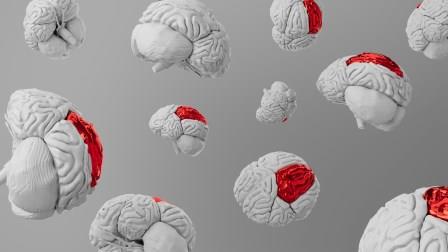Maintaining optimal brain health is essential for leading a fulfilling and productive life. As the control center of our body, the brain requires consistent care and attention to function at its best. In this comprehensive guide, we’ll explore proven strategies to improve brain health, including lifestyle changes, dietary recommendations, and mental exercises. Whether you’re looking to enhance memory, sharpen focus, or protect against cognitive decline, this guide will provide you with the tools you need to support your brain health for years to come.
In today’s fast-paced world, taking care of your brain health is more important than ever. A healthy brain not only boosts your cognitive abilities but also improves your overall well-being. This comprehensive guide will walk you through practical tips and effective strategies to enhance brain health, from incorporating brain-boosting foods into your diet to engaging in activities that stimulate mental growth. Whether you’re young or old, prioritizing your brain health can make a significant difference in your quality of life.
1) Introduction
Importance of Brain Health
Brain health is crucial for maintaining overall well-being and quality of life. As the control center of your body, the brain is responsible for everything from basic bodily functions to complex cognitive tasks. Prioritizing brain health can help prevent cognitive decline, improve memory, and enhance focus, allowing you to perform at your best in both personal and professional settings. By taking proactive steps to support brain health, you can safeguard your mental clarity and resilience, ensuring a sharper mind as you age.
Investing in brain health also contributes to emotional stability and mental well-being. A healthy brain enables you to manage stress effectively, make sound decisions, and maintain a positive outlook on life. With the rising awareness of mental health issues, focusing on brain health has never been more important. By understanding and implementing key strategies to boost brain health, you can protect yourself against various neurological conditions and improve your overall quality of life.
Overview of the Guide
This comprehensive guide is designed to provide you with actionable insights and proven strategies to enhance brain health. From understanding the basics of brain function to exploring advanced techniques for cognitive improvement, this guide covers all aspects of brain health. Whether you’re looking to boost your memory, sharpen your focus, or protect your brain as you age, this guide offers practical advice tailored to your needs.
In this guide, you’ll find information on lifestyle changes, nutrition, mental exercises, and supplements that can positively impact brain health. Each section is carefully crafted to give you the tools and knowledge necessary to make informed decisions about your brain health. By following the steps outlined in this guide, you’ll be well-equipped to take charge of your cognitive well-being and maintain a healthy, vibrant mind throughout your life.
2) Understanding Brain Health
What is Brain Health?
Brain health refers to the overall well-being of your brain, encompassing its ability to perform essential cognitive functions such as memory, learning, and decision-making. Maintaining optimal brain health ensures that your mind stays sharp, resilient, and capable of adapting to new challenges throughout life. Just like physical health, brain health is influenced by various factors, including lifestyle choices, nutrition, and mental activity. By prioritizing brain health, you can improve your quality of life, enhance cognitive performance, and reduce the risk of age-related cognitive decline.
Understanding brain health is crucial in today’s fast-paced world, where mental demands are constantly increasing. A healthy brain allows you to process information efficiently, maintain emotional balance, and manage stress effectively. Brain health isn’t just about preventing disease; it’s about optimizing your brain’s performance at every stage of life. By focusing on activities and habits that support brain health, you can ensure long-term cognitive vitality and a more fulfilling life.
Key Factors Affecting Brain Function
Several key factors play a significant role in determining brain function and overall brain health. Nutrition is one of the most important, as the brain requires specific nutrients, such as omega-3 fatty acids and antioxidants, to function optimally. Regular physical exercise also enhances brain health by promoting blood flow to the brain and stimulating the growth of new neural connections. Additionally, quality sleep is crucial, as it allows the brain to rest, repair, and consolidate memories, ensuring peak cognitive performance.
Stress management is another critical factor in maintaining brain health. Chronic stress can negatively impact brain function, leading to issues such as memory problems and difficulty concentrating. Engaging in mental exercises, such as puzzles or learning new skills, also plays a vital role in keeping the brain active and resilient. By understanding and addressing these key factors, you can significantly improve your brain health and maintain cognitive function well into old age.
3) Lifestyle Changes to Boost Brain Health
Importance of Regular Exercise
Regular exercise is crucial for maintaining optimal brain health. Physical activity increases blood flow to the brain, delivering essential nutrients and oxygen that support cognitive function. Engaging in regular exercise, such as walking, jogging, or strength training, not only boosts brain health but also enhances memory, focus, and mental clarity. Incorporating at least 30 minutes of moderate exercise into your daily routine can significantly improve brain health over time.
In addition to cognitive benefits, regular exercise plays a key role in reducing the risk of neurodegenerative diseases like Alzheimer’s. Exercise stimulates the production of brain-derived neurotrophic factor (BDNF), a protein that promotes the growth and survival of brain cells. By making physical activity a consistent part of your lifestyle, you can protect and strengthen your brain health as you age.
Benefits of Quality Sleep
Quality sleep is essential for maintaining and improving brain health. During sleep, the brain undergoes crucial processes such as memory consolidation, toxin removal, and cell repair. Getting 7-9 hours of uninterrupted sleep each night is vital for optimal cognitive function, as it allows the brain to recharge and prepare for the challenges of the day ahead. Prioritizing quality sleep can significantly enhance brain health, leading to better concentration, decision-making, and emotional regulation.
Lack of sleep, on the other hand, can negatively impact brain health by impairing cognitive abilities and increasing the risk of mental health issues. Chronic sleep deprivation has been linked to a higher likelihood of developing neurodegenerative diseases and memory problems. By establishing a consistent sleep schedule and creating a sleep-conducive environment, you can support and overall well-being.
Managing Stress for Cognitive Health
Managing stress is a critical component of maintaining brain health. Chronic stress triggers the release of cortisol, a hormone that, in high levels, can damage brain cells and impair cognitive function. Over time, unmanaged stress can lead to memory issues, reduced focus, and an increased risk of mental health disorders. By adopting stress-management techniques such as deep breathing, meditation, and regular physical activity, you can protect your brain health and improve mental resilience.
Effective stress management not only preserves brain health but also enhances cognitive performance. Engaging in activities that reduce stress, such as yoga or mindfulness practices, helps to lower cortisol levels and promotes a sense of calm and clarity. Prioritizing stress management is essential for maintaining optimal and preventing the cognitive decline associated with prolonged stress.
4) Brain-Boosting Nutrition
Foods that Improve Brain Health
Incorporating certain foods into your diet can significantly enhance brain health. Fatty fish, such as salmon and mackerel, are rich in omega-3 fatty acids, which are crucial for maintaining cognitive function and preventing memory loss. Additionally, leafy greens like spinach and kale provide antioxidants that protect brain cells from damage, helping to improve overall.
Nuts and seeds, particularly walnuts and flaxseeds, are excellent sources of vitamin E, which has been shown to reduce cognitive decline as you age. Berries, especially blueberries, are another brain-boosting food, packed with antioxidants that help improve memory and protect against neurodegenerative diseases. By including these foods in your daily diet, you can support and enhance your brain health effectively.
Essential Nutrients for Cognitive Function
Certain nutrients are essential for optimal cognitive function and overall. Omega-3 fatty acids, found in fatty fish, flaxseeds, and walnuts, play a vital role in maintaining the structure of brain cells and supporting cognitive processes such as memory and learning. B vitamins, including B6, B12, and folate, are crucial for producing neurotransmitters that regulate mood and brain function.
Antioxidants like vitamins C and E help protect the brain from oxidative stress, which can lead to cognitive decline. Additionally, magnesium supports nerve transmission and brain plasticity, which are essential for learning and memory. Ensuring your diet is rich in these essential nutrients can significantly boost and cognitive performance.
Hydration and its Impact on the Brain
Staying hydrated is essential for maintaining optimal brain health. The brain is composed of about 75% water, and even mild dehydration can impair cognitive functions such as concentration, memory, and mood. Drinking enough water throughout the day helps ensure that your brain receives the oxygen and nutrients it needs to function effectively.
Dehydration can also lead to headaches, fatigue, and reduced mental clarity, further impacting your brain health. To keep your brain sharp and alert, it’s important to drink plenty of water and consume hydrating foods like fruits and vegetables. Maintaining proper hydration supports cognitive function and promotes overall.
5) Mental Exercises and Cognitive Activities
Brain-Training Games and Puzzles
Engaging in brain-training games and puzzles is a fun and effective way to enhance. These activities challenge your cognitive abilities, improving memory, problem-solving skills, and mental agility. Whether you prefer crossword puzzles, Sudoku, or digital brain-training apps, regularly incorporating these exercises into your routine can help keep your mind sharp and resilient against cognitive decline.
Studies have shown that brain-training games and puzzles can stimulate neural connections and promote brain plasticity, which is crucial for maintaining optimal. By dedicating just a few minutes each day to these mentally stimulating activities, you can significantly boost your cognitive performance and support long-term brain health.
The Role of Learning and New Hobbies
Continuing to learn and take up new hobbies plays a vital role in maintaining. Engaging in activities that require mental effort, such as learning a new language or playing a musical instrument, stimulates brain cells and encourages the formation of new neural pathways. This ongoing mental stimulation is essential for keeping your brain active and healthy.
Exploring new hobbies not only enhances brain health but also adds joy and fulfillment to your life. Whether it’s painting, cooking, or gardening, these activities provide a sense of achievement and promote cognitive function. By challenging your mind with fresh experiences, you can protect against age-related cognitive decline and support overall.
Mindfulness and Meditation Practices
Mindfulness and meditation practices are powerful tools for improving. These practices help reduce stress, enhance focus, and promote emotional well-being, all of which are essential for maintaining a healthy brain. Regular meditation has been shown to increase gray matter in areas of the brain associated with memory, learning, and emotional regulation.
Incorporating mindfulness and meditation into your daily routine can have a profound impact on your brain health. These practices encourage a state of relaxation and mental clarity, which helps to alleviate the harmful effects of chronic stress on the brain. By dedicating time to mindfulness and meditation, you can boost cognitive function and support long-term.
6) Supplements and Brain Health
Common Brain Health Supplements
Many people turn to brain health supplements to support cognitive function and mental clarity. Some of the most popular supplements include ginkgo biloba, which is believed to enhance memory and focus, and Bacopa monnieri, known for its potential to reduce anxiety and improve brain performance. Other common brain health supplements, such as phosphatidylserine and acetyl-L-carnitine, are often used to boost memory, concentration, and overall mental sharpness.
Another widely used supplement for brain health is curcumin, derived from turmeric, which has powerful antioxidant and anti-inflammatory properties. It is thought to protect brain cells from damage and support cognitive function. Additionally, supplements like vitamin B12 and folic acid are crucial for maintaining, particularly in preventing cognitive decline associated with aging.
The Science Behind Omega-3 Fatty Acids
Omega-3 fatty acids are essential for brain health, playing a critical role in maintaining the structure and function of brain cells. These healthy fats, particularly DHA (docosahexaenoic acid), are vital components of cell membranes in the brain and are known to support cognitive processes such as memory and learning. Research has shown that a diet rich in omega-3 fatty acids may help protect against cognitive decline and reduce the risk of neurodegenerative diseases like Alzheimer’s.
The anti-inflammatory properties of omega-3 fatty acids also contribute by reducing inflammation that can damage brain cells over time. Studies suggest that individuals with higher levels of omega-3s in their diet tend to have better cognitive function and a lower incidence of mood disorders like depression. Incorporating omega-3-rich foods like fish, flaxseeds, and walnuts into your diet is a natural way to support.
Safety and Efficacy Considerations
When it comes to brain health supplements, safety and efficacy are crucial considerations. While many supplements offer potential cognitive benefits, it’s essential to choose products that have been tested for quality and effectiveness. Not all supplements are created equal, and some may contain ingredients that are not well-researched or could interact with other medications. Consulting with a healthcare provider before starting any new supplement regimen is advisable to ensure it is safe and appropriate for your specific needs.
Additionally, understanding the proper dosage and potential side effects of supplements is important for achieving desired results without adverse effects. Some supplements, like high doses of certain vitamins, can be harmful if taken excessively. Ensuring that you are using supplements that are backed by scientific research and manufactured by reputable companies can help you maximize their benefits while minimizing risks.
7) Protecting Your Brain as You Age
Preventing Cognitive Decline
Preventing cognitive decline is crucial for maintaining long-term brain health. Engaging in regular physical activity has been shown to reduce the risk of cognitive decline by improving blood flow to the brain and promoting the growth of new brain cells. Additionally, adopting a diet rich in antioxidants, healthy fats, and vitamins can protect the brain from oxidative stress and inflammation, both of which contribute to cognitive deterioration. Prioritizing these healthy habits can significantly lower the chances of experiencing cognitive decline as you age.
Another effective strategy for preventing cognitive decline is staying mentally active. Challenging your brain through puzzles, learning new skills, or engaging in creative activities can keep your mind sharp and resilient. Social interaction is equally important, as it stimulates cognitive processes and reduces the risk of dementia. By combining mental stimulation with a supportive social environment, you can effectively safeguard and enjoy better cognitive function well into your later years.
Early Warning Signs of Memory Issues
Recognizing the early warning signs of memory issues is essential for protecting. One of the most common indicators is frequently forgetting recent events, names, or important dates. While occasional forgetfulness is normal, consistent memory lapses may signal the onset of cognitive decline. Other early signs include difficulty concentrating, struggling to follow conversations, or frequently losing track of time and tasks. Being aware of these symptoms allows for early intervention, which is crucial for preserving.
In addition to memory lapses, changes in behavior and mood can also be early warning signs of memory issues. For example, individuals may become easily frustrated, anxious, or withdrawn due to the challenges posed by memory difficulties. These changes can affect daily functioning and social interactions, further impacting. If you or a loved one notice these signs, consulting a healthcare professional is important for early diagnosis and management.
Conclusion
Recap of Key Strategies: To enhance brain health, it’s essential to focus on a holistic approach that includes both physical and mental well-being. Regular exercise, a balanced diet rich in brain-boosting nutrients, and quality sleep are foundational elements that support cognitive function. Additionally, engaging in mental exercises, such as puzzles and learning new skills, can help keep your mind sharp. Incorporating these strategies into your daily routine is key to maintaining and improving.
Another crucial aspect of brain health is stress management. Chronic stress can have detrimental effects on cognitive function, so practices like mindfulness and meditation are highly beneficial. Supplementing your diet with essential nutrients, such as Omega-3 fatty acids, also plays a vital role in supporting brain health. By implementing these key strategies consistently, you can significantly enhance your cognitive abilities and protect your brain as you age.
Encouragement to Prioritize Brain Health: Prioritizing brain health is more than just a choice; it’s an investment in your future. A healthy brain is essential for living a vibrant and fulfilling life, allowing you to stay mentally agile and emotionally balanced. By making small, consistent changes to your lifestyle—such as exercising regularly, eating a nutrient-rich diet, and engaging in mental activities—you can greatly improve and overall well-being.
Don’t wait for signs of cognitive decline to start caring. The earlier you begin, the better equipped you’ll be to prevent issues later in life. Take proactive steps today to nurture your mind, and you’ll reap the benefits of enhanced memory, sharper focus, and a greater sense of mental clarity for years to come. Prioritizing brain health is one of the best decisions you can make for your long-term health and happiness.
FAQs
Common Questions About Brain Health:
Many people have common questions about brain health, such as how to keep the mind sharp as they age, what foods support cognitive function, and whether brain-training apps really work. Understanding the basics of brain health is crucial for making informed decisions about your mental well-being. This guide provides answers to these common questions, helping you take proactive steps to maintain and improve throughout your life.
Myths and Facts About Cognitive Function:
There are numerous myths about cognitive function that can mislead those interested. For example, many believe that brain cells stop regenerating as we age, when in fact, the brain has the ability to form new connections throughout life. This section will debunk common myths and provide facts to help you better understand the realities, empowering you to make choices that truly benefit your cognitive function.



